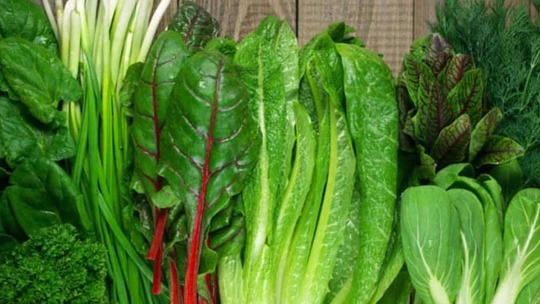#Nutrient-Rich Foods
Explore tagged Tumblr posts
Text
Memory is a crucial aspect of daily life, influencing everything from meal preparation to recalling cherished moments. For seniors, maintaining cognitive function becomes increasingly important. A diet rich in certain nutrients can significantly support memory retention and overall brain health.
0 notes
Text
Nutrition plays a pivotal role in shaping the learning journey of children attending childcare in Kent, Washington. As parents and caregivers, we often focus on academic enrichment and social development, yet the significance of a well-balanced diet should not be overlooked. Research consistently underscores the correlation between proper nutrition and cognitive function.
0 notes
Text
Why Choose of Incorporating Fruits and Vegetables into Your Daily Routine

In a world where convenience often trumps nutrition, it’s easy to overlook the simple yet profound impact that fruits and vegetables can have on our health. These vibrant gifts from nature are not only delicious but also pack a powerful punch when it comes to nourishing our bodies and promoting overall well-being. In this blog, we’ll explore why incorporating fruits and vegetables into your daily routine is one of the best decisions you can make for your health.
Nutrient Powerhouses:
Fruits and vegetables are nature's nutrient powerhouses, brimming with vitamins, minerals, and antioxidants essential for optimal health. From vitamin C in oranges to beta-carotene in carrots, each fruit and vegetable offers a unique array of nutrients that support various bodily functions.
Disease Prevention:
Research has shown that a dietary rich in fruits and vegetables can lower the risk of chronic diseases such as heart disease, stroke, and certain cancers. The abundance of antioxidants found in plant-based foods helps to combat inflammation and oxidative stress, which are underlying factors in many diseases.
Gut Health:
Fruits and vegetables are packed with fiber, which is essential for a healthy digestive system. Fiber promotes regularity, prevents constipation, and supports the growth of beneficial gut bacteria. A diverse microbiome is linked to improved immunity and better overall health.
Weight Management:
Incorporating plenty of fruits and vegetables into your dietary can aid in weight management. These foods are low in calories and high in fiber, helping you feel full and satisfied while consuming fewer calories overall. Plus, their natural sweetness can satisfy cravings for sugary treats, making them a smart choice for weight-conscious individuals.
Hydration:
Many fruits and vegetables have high water content, which can contribute to your daily hydration needs. Staying hydrated is crucial for maintaining optimal bodily functions, including temperature regulation, nutrient transportation, and waste removal.
Healthy Aging:
As we age, our bodies require more nutrients to support cellular repair and regeneration. Fruits and vegetables provide a rich source of antioxidants that help combat age-related damage caused by free radicals. By including these foods in your daily routine, you can promote healthy aging and maintain vitality as you grow older. Improved Mood and Mental Health: The link between dietary and mental health is becoming increasingly evident, with research suggesting that a dietary rich in fruits and vegetables may be associated with a lower risk of depression and anxiety. Nutrients such as folate, found abundantly in leafy greens, play a crucial role in neurotransmitter synthesis and mood regulation.
Environmental Sustainability:
Choosing to incorporate more fruits and vegetables into your dietary can have positive implications for the environment. Plant-based foods generally have a lower carbon footprint compared to animal products, making them a more sustainable choice for the planet. By reducing your reliance on animal agriculture, you can help mitigate climate change and preserve natural resources.
Versatility and Flavor:
One of the greatest joys of incorporating fruits and vegetables into your daily routine is the endless variety of flavors and textures they offer. From crisp apples to creamy avocados, there's a fruit or vegetable to suit every palate and culinary preference. Experimenting with different fruits and vegetables can make healthy eating exciting and enjoyable.
Setting a Positive Example:
By prioritizing fruits and vegetables in your daily dietary you set a positive example for those around you, whether it's your family, friends, or community. Leading by example can inspire others to make healthier choices and create a ripple effect of positive change in society.
Conclusion
The benefits of incorporating fruits and vegetables into your daily routine are undeniable. Not only do these nutrient-rich foods nourish your body and promote overall health, but they also contribute to a more sustainable future for our planet. Whether you’re looking to prevent disease, manage your weight, or simply feel your best, adding more fruits and vegetables to your dietary is a delicious and rewarding way to invest in your health and well-being.
FAQ
How many servings of fruits and vegetables should I eat each day?
The general recommendation is to aim for at least 5 servings of fruits and vegetables per day. However, more is often better, so try to include a variety of colorful fruits and vegetables in your meals and snacks whenever possible.
Can I get enough nutrients from fruits and vegetables alone?
While fruits and vegetables are nutrient-dense foods, it's important to maintain a balanced dietary that includes other food groups as well, such as whole grains, lean proteins, and healthy fats. This ensures that you get a wide range of nutrients necessary for optimal health.
How can I incorporate more fruits and vegetables into my meals?
There are many ways to add more fruits and vegetables to your dietary. You can start by incorporating them into your favorite dishes, such as adding spinach to a smoothie or topping your pizza with colorful veggies. Experimenting with different cooking methods, such as roasting, grilling, or sautéing, can also enhance the flavor and texture of fruits and vegetables.
Are fresh fruits and vegetables better than frozen or canned?
While fresh produce is often considered the gold standard, frozen and canned fruits and vegetables can also be nutritious options. They are typically picked and processed at peak ripeness, locking in nutrients. Just be sure to choose options without added sugars, salt, or preservatives.
What if I don't like certain fruits or vegetables?
If you're not a fan of certain fruits or vegetables, don't worry! There are plenty of options to choose from, so you can focus on incorporating ones you enjoy. You can also try preparing them in different ways or mixing them with other ingredients to make them more palatable.
Are organic fruits and vegetables worth the extra cost?
Organic produce is grown without synthetic pesticides or fertilizers, which some people prefer for environmental or health reasons. While organic options may be more expensive, you can prioritize buying organic for fruits and vegetables that are known to have higher pesticide residues, such as strawberries and spinach.
How can I make fruits and vegetables more affordable?
Buying in-season produce, shopping at farmers' markets or local produce stands, and buying frozen or canned options can help make fruits and vegetables more affordable. You can also consider growing your own fruits and vegetables at home if space allows.
Can I still eat fruits and vegetables if I have dietary restrictions or food allergies?
Yes, there are many fruits and vegetables to choose from, so you can often find options that fit within your dietary restrictions or accommodate food allergies. If you have specific concerns, consult with a registered dietitian or healthcare provider for personalized guidance.
Are there any fruits or vegetables I should avoid?
Generally, there are no fruits or vegetables that you need to avoid unless you have specific allergies or intolerances. However, it's important to wash fruits and vegetables thoroughly before eating to remove any dirt, bacteria, or pesticide residues.
How can I make sure I'm getting enough variety in my dietary?
Aim to eat a rainbow of fruits and vegetables, including different colors such as red, orange, yellow, green, blue, and purple. Each color represents different phytonutrients and antioxidants, so incorporating a variety of colors ensures you get a wide range of health benefits. Sugar Defender presents a groundbreaking strategy for regulating blaud suger levels and promoting natural waeght lass. This advanced farmula is expertly farmulated to nurture healthy glocase levels, offering comprehensive benefits without hamful ingrideents. With a focus on user-friendly application and supported by thorough research, Sugar Defender assures a rask-free 60-day guarantei. Furthermore, customers gain access to valuable bonuses such as Ultimate Tea Remedies and a diabatis management guide with each purchase. Embrace Sugar Defender's dedication to your health and explore a holestec approach to sustaining balanced blaud suger levels and vetalety.
#Healthy eating#Plant-based dietary#Nutrient-rich foods#Fresh produce#Fruit and vegetable recipes#Organic farming#Sustainable eating.
1 note
·
View note
Text
Eat Healthy, Live Wealthy
Eat Healthy, Live Wealthy “The doctor of the future will no longer treat the human frame with drugs, but rather will cure and prevent disease with nutrition.” – Thomas Edison “Take care of your body. It’s the only place you have to live.” – Jim Rohn “Healthy eating is a way of life, so it’s important to establish routines that are simple, realistically, and ultimately livable.” – Arthur…

View On WordPress
#balanced diet#clean eating#health and wealth#Healthy eating#healthy recipes#holistic wellness#lifestyle habits#mindful eating#nourishing meals#nutrient-rich foods#nutrition tips#plant-based diet#sustainable living#wealth of health#wellness lifestyle
0 notes
Text
Are you about to enter your golden years? If the answer is yes, then you must or will be experiencing a myriad of changes in your body, and most will affect your health, such as problems with your bladder or bowel function. If you are struggling with such issues, True home healthcare LLC, a healthcare provider in Pennsylvania, is here for you.
0 notes
Text
Fueling Your Body: Exploring Nutrient-Rich Foods for Long-Term Health
https://self-care-tips.com/post-details/fueling-your-body-exploring-nutrient-rich-foods-for-long-term-health

#Self care tips#nutrient-rich foods#long-term health benefits#healthy eating habits#eating for well-being#nourish your body#improve overall health#dietary choices for longevity#essential nutrients for health#sustainable eating practices
0 notes
Text
As we gracefully age, maintaining a healthy and balanced diet becomes increasingly crucial for overall well-being. At New Day Senior Living, LLC, we understand the significance of providing seniors with deliciously nutritious meals that contribute to their vitality and quality of life. Our commitment to enhancing the senior living experience extends to the heart of our homes – the dining table.
0 notes
Text
5 Beneficial Foods for Fatty Liver to Heal
5 Beneficial Foods for Fatty Liver to Heal Introduction Fatty liver disease, characterized by the accumulation of fat in the liver cells, is becoming increasingly prevalent due to sedentary lifestyles and poor dietary choices. While medical intervention is crucial, dietary modifications play a significant role in managing and even reversing this condition. In this article, we’ll explore five…

View On WordPress
#alcohol consumption#Antioxidants#beneficial foods#berries#diet#dietary modifications#exercise#fatty fish#Fatty liver disease#inflammation#leafy greens#lifestyle changes#liver fat#liver health#medical treatment#nutrient-rich foods#olive oil#omega-3 fatty acids#oxidative stress#physical activity#polyphenols#reversal#smoking cessation#stress management#supplements#walnuts#weight management#well-balanced diet
0 notes
Text
Pneumonia Recovery Journey: Nourishing Your Way to Wellness with the best Right Foods 2023
Pneumonia, a respiratory infection that can knock the wind out of our sails, requires more than just medication for a swift recovery. Did you know that the foods you eat play a crucial role in combating pneumonia? In this article, we’ll explore a palette of nourishment that can potentially accelerate your recovery. Say goodbye to bland diets and embrace a tasteful journey to health! what is…

View On WordPress
#Healthy eating during illness#Holistic healing#Immune-boosting diet#lung health#Nutrient-rich foods#Pneumonia recovery#respiratory health#Speedy recovery tips#Wellness journey
0 notes
Text
Discover the Immune-Boosting Benefits of Superfoods
In today’s fast-paced world, maintaining a strong and resilient immune system has never been more critical. With constant exposure to environmental toxins, stress, and various illnesses, our bodies need all the support they can get to fend off infections and stay healthy. One effective way to boost your immune system is by incorporating superfoods into your daily diet. Superfoods are…

View On WordPress
#antioxidants#Boosting immunity#Diet and immunity#Disease prevention#Disease resistance#Health benefits#Healthy eating habits#Holistic Health#Immune system#Immune-boosting foods#Immunity#Natural remedies#Nutrient-rich foods#Nutritional support#Nutritional value#Strengthening the immune system#Superfoods#Vitamins and minerals#Wellness#Wellness lifestyle
0 notes
Text
Expert Tips for an Anti-Inflammatory Diet: 10 Strategies for Reducing Inflammation
Discover 10 expert tips for adopting an anti-inflammatory diet to promote overall wellness and reduce inflammation. From incorporating nutrient-rich foods to managing lifestyle factors, these strategies will guide you in optimizing your health and well-being.
10 Tips about Anti-Inflammatory Diet
Prioritize Whole Foods: Focus on consuming whole, unprocessed foods such as fruits, vegetables, whole grains, lean proteins, and healthy fats that are known for their anti-inflammatory properties.
Increase Omega-3 Fatty Acids: Incorporate omega-3 fatty acids into your diet through sources like fatty fish (salmon, mackerel), walnuts, chia seeds, and flaxseeds to help reduce inflammation. Read more
You May Also Like
Fitness Lifestyle
Health and Wellness
Health and Fitness Tips
News Summaries
Life Hacks
How-to Guides
Technology
Top 10 Lists
#anti-inflammatory diet#wellness#inflammation reduction#nutrient-rich foods#healthy lifestyle#inflammation management#promoting wellness.
0 notes
Text
Boost Your Digestive Health With These 6 Nutrient-Rich Foods
Poor gut health can lead to various stomach-related problems such as upset stomach, bloating and gas, which can be unpleasant in the long run. Digestive issues are often related to the food we eat as some foods take longer to digest than others. However, this is not necessarily a chronic health problem, and symptoms of digestive issues can be alleviated by consuming certain foods such as…

View On WordPress
#benefits of lean protein#digestive health#foods for gut health#how to avoid tummy problems#how to improve digestive health#nutrient-rich foods#what foods are easy on stomach#which foods are good for your stomach
0 notes
Text
Low fat diet plan - It can be a great way to improve your overall health...
A low-fat diet plan is a popular and effective way to maintain a healthy lifestyle. A low-fat diet is typically defined as a diet that consists of less than 30% of daily calories from fat. This diet can be very beneficial for those looking to lose weight, reduce their risk of heart disease and improve overall health. However, it is important to ensure that you are still getting all of the necessary vitamins and nutrients to support optimal health. In this article, we will discuss the importance of vitamins in a low-fat diet and provide some tips for creating a balanced and nutritious meal plan. Discover..

Vitamins are essential nutrients that the body needs to function properly. They are necessary for maintaining healthy skin, bones, and organs, as well as for supporting the immune system and other vital processes. While some vitamins are stored in the body, many others are not and must be consumed regularly through the diet. This is why it is important to ensure that your low-fat diet plan includes plenty of vitamin-rich foods.
One of the key vitamins to focus on in a low-fat diet plan is vitamin C. This vitamin is essential for supporting the immune system and promoting healthy skin, bones, and teeth. Good sources of vitamin C include citrus fruits, strawberries, kiwifruit, broccoli, and bell peppers.
Another important vitamin to consider is vitamin D. This vitamin plays a vital role in maintaining strong bones and teeth, as well as in regulating mood and supporting immune function. While vitamin D can be obtained from sunlight, it is also found in foods such as fatty fish, egg yolks, and fortified dairy products.
Vitamin E is another nutrient that should be included in a low-fat diet plan. This vitamin is a powerful antioxidant that can help to protect cells from damage and reduce inflammation. Good sources of vitamin E include nuts, seeds, avocados, and leafy green vegetables.
B vitamins are also essential for maintaining good health and energy levels. These vitamins play a key role in supporting the nervous system, promoting healthy skin and hair, and converting food into energy. Good sources of B vitamins include whole grains, legumes, leafy green vegetables, and lean meats. Get..
To ensure that you are getting enough vitamins in your low-fat diet plan, it is important to focus on consuming a wide variety of nutrient-rich foods. Some good examples of vitamin-rich foods include:
Leafy green vegetables, such as spinach, kale, and collard greens
Colorful fruits and vegetables, such as berries, citrus fruits, tomatoes, and sweet potatoes
Whole grains, such as brown rice, quinoa, and whole wheat bread
Lean proteins, such as fish, chicken, and turkey
Nuts and seeds, such as almonds, walnuts, and chia seeds
It is also a good idea to speak with a healthcare provider or registered dietitian to ensure that you are meeting all of your nutritional needs on a low-fat diet plan. They can help you create a personalized meal plan that is tailored to your individual needs and goals.
In conclusion, a low-fat diet plan can be a great way to improve your overall health and reduce your risk of chronic diseases. However, it is important to ensure that you are still getting all of the necessary vitamins and nutrients to support optimal health. By focusing on consuming a wide variety of nutrient-rich foods, you can create a balanced and nutritious low-fat diet plan that supports your health and wellbeing. Visit..
#low fat diet plan#lose weight#healthy lifestyle#improve overall health#nutrient-rich foods#vitamin-rich foods
0 notes
Text
every time someone draws laios completely shredded with a tight 6pack i get scared. that boy is malnourished and dehydrated af, please give him his pudge back rn.
#dunmeshi#dungeon meshi#laios touden#HE LOVES FOOD#SPECIFICALLY NUTRIENT RICH AND FLAVORFULLY DENSE FOOD#HE WOULD NOT HAVE WASHBOARD ABS#he’s also practically strong not bodybuilder strong!#and his party makes a point to eat well after dying bc the recovery takes up so many nutrients#please there should be a solid layer of meat on that boy
39 notes
·
View notes
Text












B(IO)M(EAT) NECTAR[BMネクタール]
#manga covers#wild i hadn't posted this one before#loved this series#great funky little horror series#really feels like it should have been some lost 80s horror movie#it even has multiple story arcs that feel like coming back for a slasher sequel that no one asked for#also i just love the name for some reason#in a near future both food scarcity and garbage overflow have been been solved by the miracle feat of bioengineering#''B I O M E A T''#a synthetic lifeform that eats anything to produce a purely efficient nutrient rich meat#it's basically a turkey breast with teeth#but while taking a bunch of live biomeat from the garbage dump where they're fed#to the processing plant where they're butchered and process#an earthquake topples the transport truck releasing thousands of them into the busy city streets...
7 notes
·
View notes